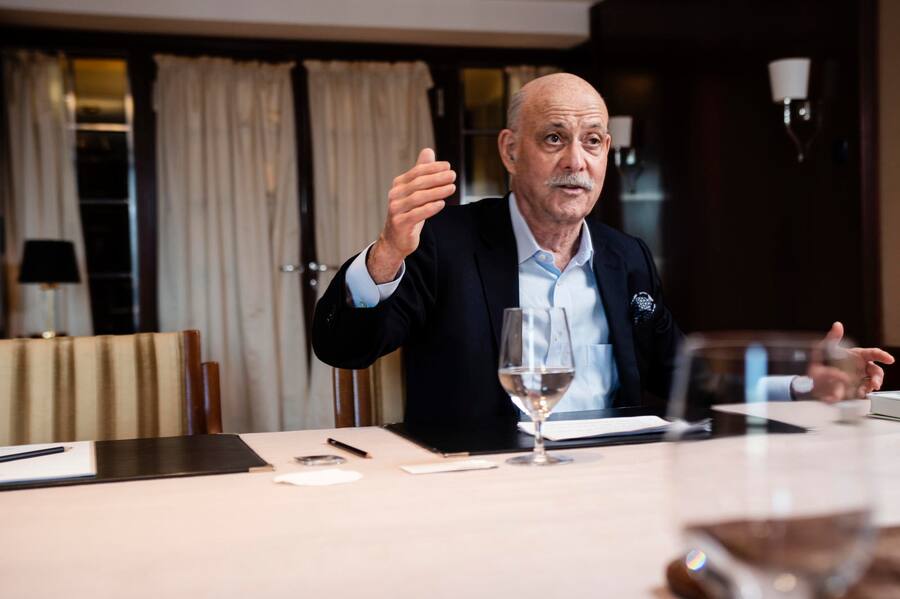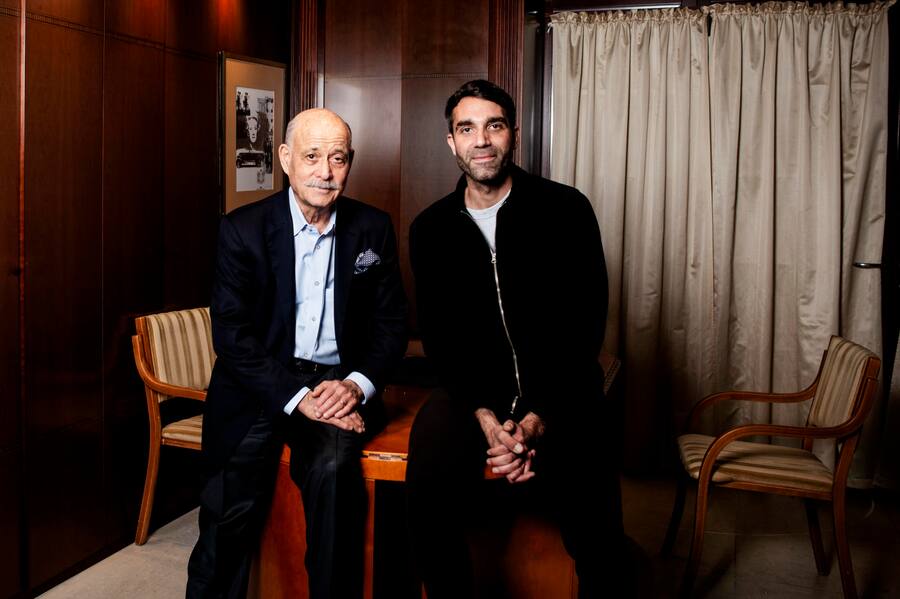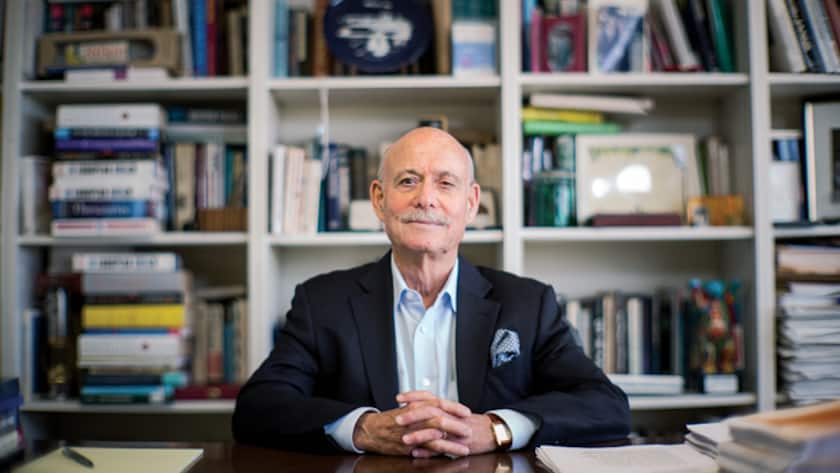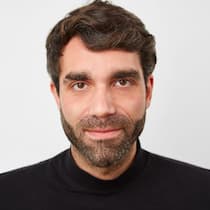Mr Rifkin, six months ago we met in Berlin in front of the Brandenburger Tor. Thousands of young people came together for «Fridays for future» – now we are doing a video call. What happened?
A turning point in human history has arrived.
You were born in 1945, at the end of the Second World War. Is the coronavirus crisis the worst thing you've experienced ever since?
Yes, it is. The coronavirus shows us that we are facing extinction. It shows us the fragility of humanity if we don’t take climate change seriously and move away from fossil fuels.
What does Covid-19 have to do with climate change?
Pandemics have increased dramatically in recent decades. We had Sars, Ebola, Swine Flu. But the coronavirus, by contrast, has arrived in Western society. Climate change is triggering mass migration from both animals and people. Animals are forced to leave their habitats, and they carry viruses, which are then spread further by humans. People today live in huge cities and urban centers. These are weak points for infections. More pandemics will occur in the future.
Jeremy Rifkin, born in Denver in 1945, is one of the most prominent futurologists. The books of the economist have been translated into twenty languages, many of which have become international bestsellers, such as «The Zero Marginal Cost Society». Rifkin is the founder of the Foundation on Economic Trends in Washington. He has taught at the Wharton Business School and advised numerous governments and organizations - such as the EU and China - and heads of state, including Angela Merkel and Nicolas Sarkozy.

Jeremy Rifkin: «People today live in huge cities and urban centers. These are weak points for infections»
How can further pandemics be prevented?
We must enter a new era: the «era of resilience». It is time to create a new narrative. How should humans deal with the rest of life on this planet in the future? To date, we occupied about 75 percent of nature, of land, on this planet. We lost biodiversity. The crisis makes us painfully aware that everything is connected. We thought we could control nature, but we do not have that power. That is the most important message of this crisis.
So it has to take an apocalyptic threat before we change?
The coronavirus is a cruel but important lesson for the future. I hope this crisis will result in a massive shift in consciousness. We must learn that we are deeply interwoven with the longings of our existence, with all the other life forms on this earth, with all the fears of the planet. That is why the Green New Deal is the only way we can go after this crisis.
The economy wants to get back on track as quickly as possible. Nobody is interested in the Green New Deal right now.
As bad as the coronavirus crisis is – it's also an opportunity! We are now facing in real-time how fast the global economy can collapse. If we continue to pollute our planet as we have done up to now, in a few decades we will only live as we do now: in quarantine and isolation, due to extreme storms, pandemics, diseases, pollution, fires.
Will the crisis really bring a change in thinking?
Even before Corona, companies understood that a world based on fossil fuels could no longer continue. This realization has now become more pronounced. The coronavirus is a slap in the face of globalization. This crisis has shaken us up.
You think so? What are the alternatives for companies that are in serious trouble after the crisis?
We have a clear trend right now: Why should banks continue to invest in fossil fuels when it is clear that solar and wind energy is cheaper in the long term.
The oil price is down. So why invest in other energy sources?
If companies continue like this, they will soon be burdened by massive «stranded assets»: investments that will soon be worth nothing. Companies will lose billions. If the price of oil drops to 20 or 10 dollars a barrel, then the biggest fossil fuel producers will collapse.
What is your advice?
Companies are starting to asking themselves: Why should we return to the old system? It gives us pollution or even pandemics. This leads to a loop that will be out of control and at some point will lead us into oblivion. But I also see many developments that make me feel optimistic. Banks and corporations are prepared to invest in new forms of energy, and the political will is also there, at least in Europe. Now we must implement the Green New Deal at the regional level. Just as the measures against the coronavirus have been implemented locally.
Globalization has become our downgrade?
We have built up globalization with huge international companies - with whom I also work, by the way. But they are too fragile. They are overly reliant on outsourcing and offshoring. This negative side of globalization is becoming the noose of the US in this pandemic. We cannot provide ventilators, there are no medicines available. That is why people are dying now. We have to move from globalization to glocalization.
That sounds like nationalism: borders are closed and everyone looks out for themselves.
Companies can take the world as a market, but they have to engage in their ecosystem. Governments will not disappear, but we must increasingly create a regional network again. Of course not only to protect against pandemics but also because of climate change. Now is the time to change that. We have the opportunity to create a new narrative that is no longer dedicated to destroying the planet. After this crisis, it is time to make the planet sustainable. There will be no second chance.

Jeremy Rifkin and «Handelszeitung» editor David Torcasso at their last meeting in person in October 2019 in Berlin. The current conversation took place via video call.
The world is on the edge. Millions are becoming unemployed, people are dying - and you are talking about the New Green Deal. This can seem cynical.
No, because we have not felt, very painfully, how quickly growth can come to an end with the onset of an event that some virologists had warned us about, but which has hit the world completely unprepared. I'm not an expert on pandemics, but there will be a second wave in autumn that lasts through next spring. Globalization, as we have known it, will end as we increasingly understand how fragile our supply chains are and how dependent we are on others. The largest industry in the world - travel and tourism - has disappeared overnight.
What is the most realistic economic scenario for the coming months?
This pandemic is creating massive unemployment in the United States. The two trillion dollar package will not be enough. In three or four months, a few more trillions will have to be added. Hopefully, we will be able to contain the spread of the virus by the summer. But in late autumn a second wave will come. We can only hope that we will have found a vaccine by then.
CO2 emissions are falling, Skype calls instead of business class flights, we consume less: is the coronavirus crisis curse and savior at the same?
Carbon emissions in China have fallen by 25 percent and air travel has declined. This is good for the environment but of course bad for the economy. I'm convinced that even if the crisis eases, we will not just return to the old agenda. This crisis is too serious for that. There is no longer any alternative for our planet. Humanity has to take responsibility for its actions. This requires a strong political will at the government level - and in your country, Switzerland, also at the cantonal level.
Will the US be hit harder by the pandemic than Europe?
In Switzerland, you have a health system that can provide additional beds and respiratory equipment. We don't have that in the United States because the Americans always take the shortcut. This short-term thinking will now be our doom. This crisis is a consequence of neoliberal globalization. It's a declaration of bankruptcy of the prevailing economic theory. In Europe and in Switzerland, the governments are negotiating a social market model. They have created a balance between the market and society, between the economy and government. This crisis is the result of an economic policy that has long been pursued in the United States.
What gives you hope?
Governor Andrew Cuomo in New York is doing a very good job. The governor in California - Gavin Newsom - is also doing a good job. They give hope not only to me but to many people. And they point to a trend that will continue to grow in the future.
What trend?
Cities all over the world need to indicate and work together to achieve something. We need to return to the regional level. There is no government that can handle climate disasters and pandemics alone. Each region must use all its resources to reach the entire population in the event of an epidemic or climatic disaster, such as a fire or flood in the region. Local businesses are affected and civil society must take care of it.
You are also part of the risk group. How do you protect yourself?
I'm 75 years old. I try to concentrate on the things I have to do. I'm in constant exchange with my colleagues. We organize video calls and do more research now. The coronavirus affects all of us, not just a certain age group. 40 percent of cases worldwide affect people under the age of 40. The Millenials will not escape this crisis.
You're not leaving the house anymore?
I work remotely with my team. My wife and I go to buy groceries every two weeks. We take all the precautions needed - put masks on, keep a safe distance. We humans realize now that we're all connected. There are those who have more and those who have less, but now more than ever, our fates are intertwined. People have understood that we must help each other to get through this crisis. In this pandemic, our empathy towards others comes out. I also wrote the book «The Empathic Civilization» about this some years ago.
Do we really show solidarity? Countries close borders, voices are raised, it is better to let a few elderly people die than to jeopardize the economy...
I know. But at the same time this is a great moment in human history. The crisis allows us to go beyond ourselves and extend our empathic impulses to our neighbor, to the whole world. This is what the kids meant when they started «Fridays for future». For perhaps the first time in history, we actually consider ourselves a threatened species.



